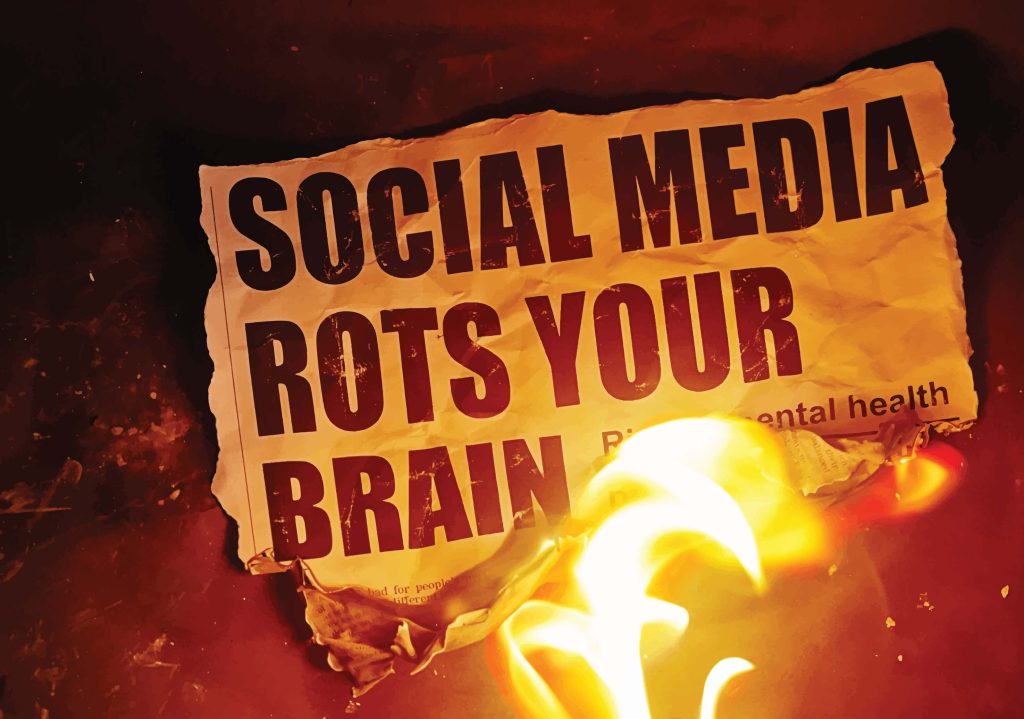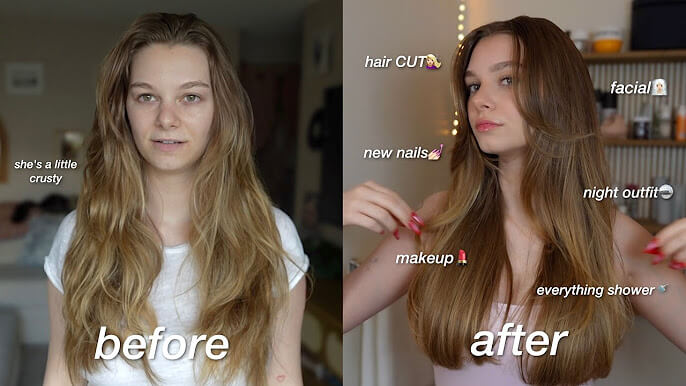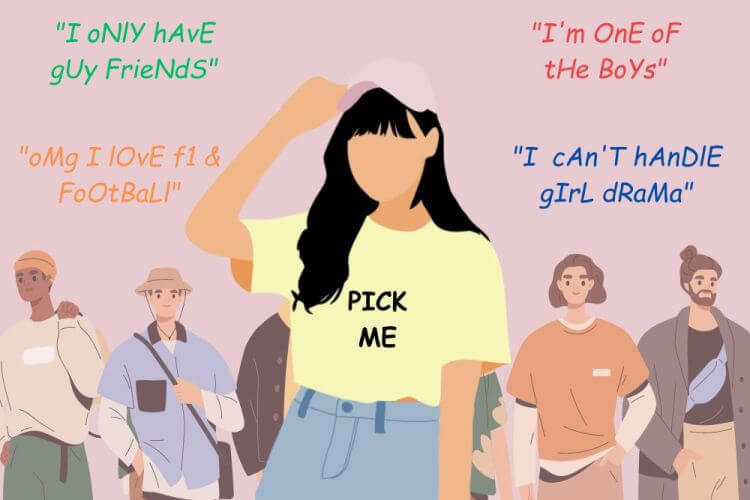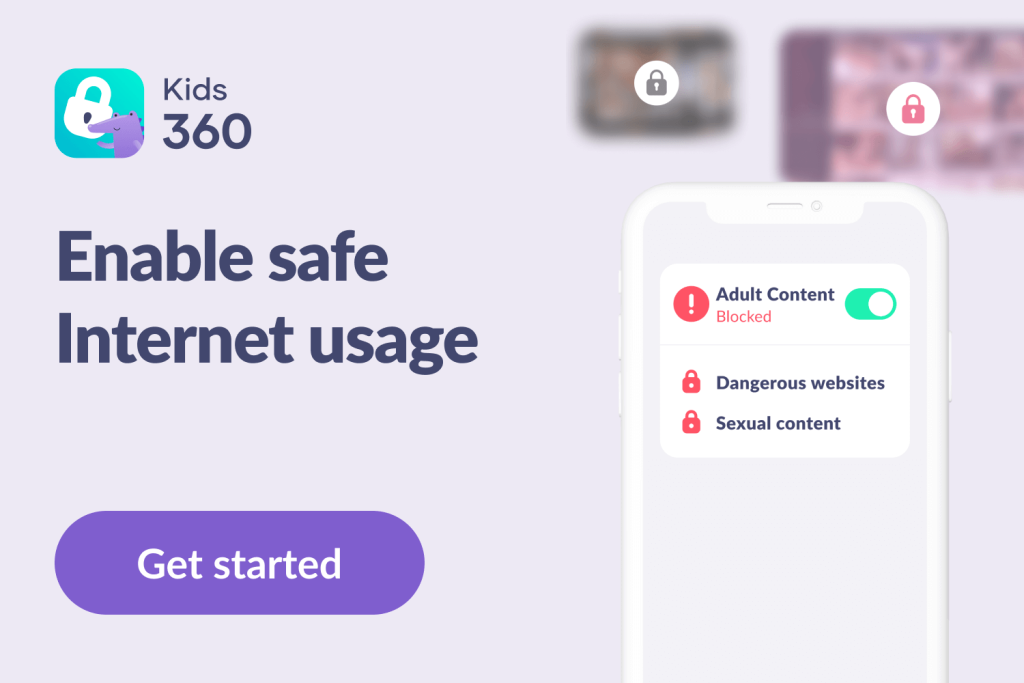Brain Rot Terms Explained: What It Means and Whether Parents Should Be Concerned

As parents, hearing our kids use slang terms that we don’t understand is all part of the day job. However, the latest viral slang, brain rot, may ring alarm bells. After all, it hardly sounds very edifying, does it? We’re here to help. Below, we’re going to find out exactly what brainrot words are, take a look at a list of brain rot terms, and consider whether or not we should be concerned about this new form of trendy slang.
Contents:
- What are Brain Rot Words?
- Why Do Kids Use Them?
- Why Should You Care About Brain Rot Words?
- Brain Rot Dictionary for Parents: 80+ Terms Decoded
- How Should Parents Respond?
- Screen Time and Digital Balance: Tools That Help
- FAQs
What are Brain Rot Words?

RapidEye/Shutterstock
Okay, let’s get started. Brain rot (also written as brainrot) words, in Gen Alpha and Z culture, are absurd or meaningless internet catchphrases and terms that are often used ironically and spread rapidly. They’re frequently linked to the oversaturation of online content and digital humor, and have their origins in platforms like Discord and TikTok, and viral trends such as Skibidi Toilet and meme edits.
Brain rot words often begin as inside references, memes, or jokes on platforms like YouTube and TikTok, and they usually have an absurd or playful quality. Knowing this “lingo” can be a badge of belonging and help kids feel they fit in with their peers or online community. The speed with which brain rot words are adopted is one of the things that defines this slang—they can go from meme to mainstream within a matter of days. While some stick around, others are ephemeral and disappear as quickly as they arrived.
The term “brain rot” itself reflects the sense of numbness or overwhelm, which is the result of endless consumption of low-grade online content and mindless scrolling. It can refer to a digital tunnel vision, where people are always online and preoccupied with certain memes, topics, or communities, which can seem alien to anyone on the “outside.”
Many brain rot words are used ironically, making it even more difficult to understand their meaning, especially if you don’t know the context.
Why Do Kids Use Them?
So, what makes brain rot words so appealing to kids? Most compelling, these terms and viral catchphrases serve as a secret language that Gen Alpha kids can understand, but leave parents mystified.
The fast spread of brain rot means the terms’ meanings are always shifting, making it even harder for “outsiders” to decode what children and teens are saying. To make things even more complicated, terms like “skibidi” can mean different things, including “bad” or “cool.” Plus, some terms have original meanings, such as “sigma,” which is connected to social hierarchies in wolf packs.
And to give you an idea of the power of brain rot, the YouTube series Skibidi Toilet—widely seen as the heart of brain rot culture—has garnered over 36 million subscribers and more than 65 billion views to date.
Why Should You Care About Brain Rot Words?
Is humorous brainrot just a harmless element of today’s online culture, or should we be worried about what it’s doing to our kids? While every generation has always created and used its own form of slang, brain rot is different. Online content and platforms allow this slang to spread exponentially faster than ever before, making it almost impossible for parents to keep up with popular brain rot terms. Content creators are playing their part, too, in proliferating this trend, creating viral brain rot memes, edits, and more.
Teachers report that the spread of these terms is making things challenging in the classroom and having a generally negative impact on kids’ learning and educators’ ability to understand what their students are saying. Brain rot words are indicative of another problem, too, pointing to excessive amounts of time spent on a screen. Consuming online content for hours has many risks for kids, from impacting sleep to potentially exposing children to predators and cyberbullying.
Some experts suggest that brain rot (excessive consumption of mindless, poor-quality online content) can even lead to problems with decision making and organizing information, mental fogginess, lethargy, and difficulties with recall.
Brain Rot Dictionary for Parents: 80+ Terms Decoded

MPIX/Shutterstock
So without further ado, here’s our comprehensive list of brain rot terms with their meanings!
Alt
Denoting an “alternative” style which is often different or edgy compared to mainstream culture.
Aura
Often used to comment on social media posts, this typically means “cool.”
Aura Check
A humorous way of judging someone’s vibe or energy—can be serious or sarcastic. For instance: “Aura check failed.”
Beef
When two content creators or influencers on Instagram or TikTok create negative drama between themselves.
Bet
A casual slang term meaning “okay,” “sure,” or “got it.” It can also signal agreement or confirmation.
Big Mood
Used to express a strong connection to an experience or general relatability.
Blud
A term used to describe a friend; similar to “bro” or “buddy.”
Bougie
Something high-end or luxurious. This term is sometimes used mockingly.
Brainrot
The impact of consuming an excessive amount of addictive or low-quality online content. It refers to both the act of consuming this content and how it can lead to becoming out of touch with reality or holding silly opinions. This term is now widely used both on and offline.
Bruh
A general and widely used reaction word that often refers to a friend.
Bussin’
Used to describe something that is particularly good, especially in relation to food.
Canceled
Publicly called out or cancelled.
Cap
Used to call out exaggerations or lies. For example, if something is referred to as “no cap” it’s true.
Chad / GigaChad
Refers to a stereotypically attractive, confident man. Sometimes used admiringly, but also ironically. In brain rot contexts, it’s used in memes and commentary about idealized masculinity.
Cheems

Buff Doge vs Cheems
A meme character based on a Shiba Inu dog, usually shown with poor grammar to express confusion or awkwardness. Often used alongside “Doge.”
Cheugy
Uncool or outdated—most frequently used by TikTok users.
Cooked
Overwhelmed, in trouble, or exhausted. Not to be confused with “cooking” which means doing well at something.
Corecore
Can be used to refer to an image or video that can’t be described or explained without being shown.
Cornification
A situation where someone has become so addicted to cringeworthy content that they can no longer act in a productive manner.
Cottagecore
An aesthetic inspired by simplicity, the countryside, and nature, often reflected in how someone dresses or their interior decor.
Crash Out
When someone acts recklessly or behaves insanely.
Crunchy
Used to describe an eco-conscious, minimalistic, natural lifestyle.
Delulu
This brain rot term is used as a short version of the word “delusional.”
Did You Pray Today?
Originating from a song by rapper Young Thug, this phrase can often be found in memes and used before doing something where you need some positive news, such as before checking your post to see if a college acceptance letter has arrived.
Drag
A negative, critical term.
Drip
Linked to dress sense and fashion, “drip” is used to positively describe someone’s general way of dressing.
Fan Behavior
This term is used to describe someone who is acting in a cringey, clingy, or obsessive manner towards someone else.
Fandoms
This term refers to communities of fans who share a passion for a pop group, movie, TV show, celebrity, etc. It’s associated with brain rot itself, as those within these communities may spend a lot of time online as part of their particular interest.
Fanum Tax
Linked to the sharing of food between friends, it can also refer to a “tax” on a friend’s food or belongings. This phrase began life as part of streaming culture before TikTok users picked it up and began adapting it to food-stealing jokes and skits.
Flex
The act of showing off, usually in connection with achievements or possessions.
FR
Stands for “for real” and is used to indicate sincerity.
Ghosting
Ignoring someone or suddenly cutting them out of your life.
Glitching
When someone acts weird or repeatedly changes their vibe, for example: “He stopped partway through his sentence and stared into space—he’s glitching.”
Glow-Up

Credit: YouTube/@kayli boyle
The effect of a makeover—a positive term.
Goated with the Sauce
This phrase references GOAT, which stands for “greatest of all time” and the sauce served with goat meat. It’s generally a good thing!
Goblin Mode
Self-indulgent or slothful behavior that shows no concern for social norms, such as, for example, basic hygiene, thereby not bothering to change clothes or shower for several days.
Goofy Ahh
Meaning ridiculous or silly, this term is often used on TikTok or X as a comment on humorous compilations or content.
Grimace Shake
Emerging on TikTok and YouTube, this viral brain rot trend involves people filming themselves drinking a McDonald’s Grimace Milkshake and then pretending to go insane or die in dramatic staged situations.
Grindset
A mindset centered on hard work and constant effort, with a focus on achieving goals and success at any cost.
Gyatt
An expression of admiration or surprise, often in connection with someone’s looks. It could be used to describe an attractive woman, for example.
Hitting the Griddy
This phrase references the dance move “the Griddy” which went viral on TikTok in 2019.
Karen
A widely recognized stereotype of an entitled or demanding middle-aged woman. Used in memes to describe unreasonable or overly assertive behavior, especially in public.
L
Not a new term, it refers to a loss or something negative.
Looksmaxxing
This brain rot word refers to the trend in which young men are encouraged to enhance their appearance. This can take the form of basic to more extreme measures.
Low-Key
Doing something in a downplayed or subtle manner.
Main Character Energy
Used to describe someone with a confident, often extroverted, manner, like the star of a movie or show.
Mewing
Pulling a funny facial expression, usually by pushing the tongue against the roof of the mouth to change the shape of the jawline.
Mid
Used as a general dismissal, originally a shortened version of “mediocre.”
Noob
Used in gaming to describe someone bad or inexperienced at a game.
No Cap
A way of saying something is completely true or sincere. Often used to emphasize honesty: “I’m serious, no cap.”
Not the Mosquito Again
Used in memes to express irritation caused by a repeated annoyance.
NPC
Standing for “non-player character”, NPC can be used in reference to someone acting mindlessly and robotically.
OK Boomer
A dismissive phrase used to mock or reject outdated or out-of-touch attitudes, particularly from older generations.
Ohio
Something odd, cringey, or weird. Derives from the concept that strange things happen “only in Ohio.”
Pick-Me Girl

Credit: otago.shorthandstories.com
Someone who puts down other girls in a bid to get male approval.
Pookie
This word is used when referring to someone the individual feels affectionate about, as in, for example, “it’s so good to see you, Pookie.”
Ratioed
Used when a comment or reply on platforms such as TikTok or YouTube gets more likes than the original post, which can imply a disagreement.
Rent Free
When someone or something occupies your thoughts constantly, often without your intention. “She’s living in your head rent free.”
Rizz
Popularized via TikTok clips in reference to someone with good flirting skills, the term means having charisma or charm, often used in the context of dating.
Sadboi
A male for whom sadness is part of their aesthetic or identity.
Savage
An unapologetic or bold comment or person.
Ship
This is short for “relationship” and is often used when speculating on whether a particular couple will get together.
Side Eye
A facial expression used to convey doubt, suspicion, scorn, or veiled curiosity. “Bombastic side eye” is a dramatic or exaggerated expression of side eye.
Sigma
This brain rot word usually refers to a “lone wolf” character displaying strong individualistic qualities. The term originally derives from the alpha-beta hierarchy in wolf packs. While alpha wolves lead a pack, sigma wolves represent quiet strength and independence, and typically navigate life on their own terms.
Simp
Someone prone to displaying excessive affection towards someone they admire.
Skibidi

Credit: youtube.com/@DaFuqBoom
Deriving from the online content Skibidi Toilet, this term can represent humor, absurdity, or be used to mean something is cool—context is everything with this word.
Skibidi Rizzler
Refers to an individual who watches social media content all day and knows every online fad, including new viral brain rot trends.
Slaps
Refers to something that’s particularly impactful or good.
Slay
When someone does something that exceeds expectations or is generally great.
Slime
A brain rot term for a friend.
Slop
Usually refers to “AI slop”—AI-generated, low-quality online or viral content.
Soft
This aesthetic term references someone who is pastel-themed, delicate, or gentle.
Speedrun
Used in gaming, this refers to completing a game as quickly (and often competitively) as possible.
Stan
A fan of something or someone. Originally derives from the song of the same name by Eminem.
Sus or Sussy
From the game Among Us, short for suspicious.
Tea
Gossip or a piece of juicy information. Used as in, “give me the latest tea!”
Thirst Trap
A video or photo intended to attract admiration or attention.
Too Fire
An expression used to describe something as incredibly good, cool, or impressive. Example: “That new track is too fire!”
Top G
Someone who is pretending to be the top dog or boss in front of other people.
Touch Grass
What you could say to someone who’s had too much screen time and needs to spend time in the real world. For example: “You’ve been watching YouTube videos for two hours, you need to go touch grass.”
uWu
Often used in online chats, this represents a cute face used to express affection or happiness—it’s sometimes used ironically.
Vibe
The feeling of a situation or atmosphere. To “vibe check” is to assess the energy or mood of a person or situation.
W
Short for “win.” It can be used to cheer someone on.
Yeet
An action like throwing something or dancing as an expression of surprise or excitement.
You Do You
An expression of encouragement to stay true to yourself or not worry about others’ opinions.
Zesty
Used if someone is acting more dramatic or salty than usual.
We’ve created an entire section on slang expressions to help parents stay on the same page as their teenagers! Come and explore.
How Should Parents Respond?

Prostock-studio/Shutterstock
For Gen Alpha kids, brain rot words and terms are part of daily life. These words are sometimes used to sum up complex ideas, and are sometimes virtually meaningless through overuse. The list of slang explained above may be useful, but it doesn’t solve the problem of how parents should respond to online trends such as brain rot. After all, there are some potential risks around the phenomenon.
Parents may be concerned that brain rot is a symptom of consuming too much low-quality online and digital content, and that the ever-expanding language of brain rot can have a negative impact on communication skills, cognitive capabilities, and attention span. In today’s digital culture, it’s virtually impossible to stop children from being exposed to brain rot words.
Encouraging kids to read more can be an effective tonic to brain rot words, as can practicing more thoughtful communication. Chatting together at dinner, discussing (in an age-appropriate way) things going on in the news, and talking about favorite books, movies, and songs, are all great ways to counter the brain rot menace!
For parents, knowing about the basic concept of brain rot and its associated trends is a good start. As well as having a chance of understanding at least some of what your kids are saying, this will also give you an idea of the sort of content they’re consuming. Ensuring children have a healthy balance when it comes to screen and real-world time is vital, too, and we’ve got the quick guide you need on this next.
Screen Time and Digital Balance: Tools That Help
One of the biggest problems with brain rot is its addictive element. Kids can find themselves staring at low-value online content for hours. As our list of brain rot words above shows, it’s a whole new world out there with its own language. Content creators are increasingly taking advantage of the Gen Alpha appetite for these types of videos, memes, and edits, helping to disseminate new online slang trends faster than the speed of light.
Ensuring kids maintain healthy online habits is key. One of the best ways to help with this is a parental control tool such as Kids360. If our list of brain rot words above has you keen to limit the time children can spend online, this tool is a must. As well as allowing you to set screen time limits for your kid, you can also block certain apps and sites completely, such as those dedicated to brain rot content. A great element of Kids360 is that it’s about creating harmony between control and giving kids room to become more independent. For example, your child can earn rewards (such as extra time playing their favorite games) by completing engaging tasks.
Other ideas to encourage kids away from their screens include making rules, as a family, about screen time, and enjoying other activities with your kids. You could try cooking together, swimming, attending a dance class, or having a Lego building challenge. Be guided by your child’s (non-screen!) interests.
Related: Phone Alternatives for a Child: Give the Smartphone a Break.
It’s also a good idea to set a positive example. Adults can succumb to brain rot online habits, too, such as doomscrolling, where hours can be lost mindlessly scrolling through our Facebook feeds, or looking at other online platforms. To this end, consider limiting your own screen time, deleting distracting apps, and considering whether the content you’re consuming is enriching. As well as being a great example to your kids, you may just find you suddenly have more time in your day to enjoy more productive and positive activities.
Avoiding Brain Rot and Promoting Healthier Online Habits
Brain rot is likely an inevitable part of life for kids today. From content creation to what they hear in the classroom, any list of brain rot words and terms is sure to grow as the months roll on, until a new trend finally comes around.
As parents, having an awareness of what brain rot relates to, and the meaning of some of the most-used terms is helpful. However, ensuring kids don’t spend too much time consuming this sort of content or subscribing to the content creators responsible for generating it is vital. Use our simple ideas above to help get kids off their screens and “touching grass” again!
FAQs
What are some brain rot words?
Popular brain rot words include gyatt, which is often used to describe an attractive woman, and skibidi, which has multiple meanings and can refer to, among other things, something absurd or something good. Slay, slime, thirst trap, and zesty are all also examples of brain rot words and terms. Take a look at our list of brain rot words above for more!
What are some Gen Z Brain Rots?
Some examples of Gen Z brain rots include content such as the animation Skibidi Toilet, low-quality YouTube videos, and endless, depthless memes.
What are the Gen Z Words?
A list of brain rot or slang words often used by Gen Z would include ghosting (ignoring someone), drag (a term of criticism), and glow-up (a makeover transformation).
Is mewing considered brainrot?
The term “mewing” has become part of brain rot slang. The trend emerged on TikTok and involves making a particular facial expression.
Cover image: eamesBot/Shutterstock
Проверьте электронный ящик




















